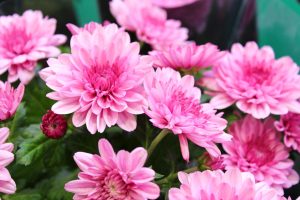Did you know that you can fertilize house plants naturally by using ingredients from your kitchen? It’s true. In this blog post, we will discuss some of the best natural plant fertilizers and how to use them. We’ll also share a few tips on how to make your own homemade plant food. So, whether you have a green thumb or not, read on for all the info you need to get started.
How To Fertilize House Plants Naturally
Organic Houseplant Fertilizer

Commercial Organic Houseplant Fertilizer is a good way to go if you’re new to keeping houseplants. It’s organic, so it won’t damage your plants or the environment, and it has all-natural ingredients that will help with feeding your houseplant. And you can easily find it at most stores or online. Plus, the best part about commercial organic fertilizer is that you only need a small amount and it won’t rot or smell when used properly.
Worm Castings

Worm Castings are a natural, organic fertilizer that can be used to fertilize house plants naturally, and it’s made up of the castings from compost worms (Eisenia fetida). Worm casting are an excellent way to improve soil quality because it contains many essential elements including nitrogen, phosphate, potassium sulfur, calcium phosphates, etc…
Click here to learn more about the best worm castings for indoor plants
Worm Tea
Another great way to fertilize house plants naturally is by using worm tea. Worm tea (Buy Online) is made by steeping a mixture of worm castings and water for a few days. The mixture can then be poured over plants or used as a soil drench. Worm tea is high in nitrogen, phosphorus, potassium, and magnesium, as well as other micronutrients. It’s also an excellent source of humic acids, which helps to improve plant growth and health.
Epsom salt

House plants can be fertilized with a mixture of Epsom salt and water. Epsom salt is magnesium sulfate, which helps promote chlorophyll production in plants. It’s also a vital nutrient that most indoor palm trees tend to lack, so if you’re having trouble growing tropical houseplants you might want to pick up a bag of Epsom salt to see if it helps them out.
Household Items To Fertilize Houseplants Naturally
Gelatin powder

One way to fertilize house plants naturally is by using gelatin powder. Gelatin powder is a source of nitrogen, which is essential for plant growth. It can be mixed with the soil when you repot your plant. Or another option is to make a “tea” mixture of gelatin powder and water, and then pour it over the soil when you water your plant.
Molasses
Molasses is a good source of essential micronutrients and organic carbon. It is also a rich source of minerals such as magnesium, potassium, calcium, and zinc. Additionally, molasses contains a small amount of B-complex vitamins.
The organic carbon in Molasses is important for plant growth and health. It is necessary for the synthesis of key plant hormones and other biomolecules. Additionally, the sugars in Molasses will feed beneficial soil microbes while also improving the water holding capacity and nutrient availability in depleted potting soil.
Corn Gluten Meal
Corn Gluten Meal is a good source of nitrogen and can be used to fertilize house plants naturally. This is because it contains proteins, which act as a natural fertilizer when they break down. For best results, mix corn gluten meal with water and pour it around the base of the plant. Alternatively, you can mix it into organic potting soil when you need to repot your house plants.
Plus, as an added bonus corn gluten meal can also be used as an effective natural pre-emergent herbicide to control weeds in gardens and lawns.
Green Tea
An interesting way to naturally fertilize your plants is to mix green tea leaves into the soil, or you can use green tea as a liquid fertilizer. Green tea is high in nitrogen, potassium, and magnesium, all of which are essential nutrients for plants. It also helps lower the pH level of alkaline soil, making it more acidic and thus better able to transport nutrients.
To use green tea as a natural house plant fertilizer simply steep some green tea leaves in hot water and let it cool down before you use it to water your plants.
Or better yet you can dissolve some green tea powder in water if you want to deliver a stronger dose of nutrients to your houseplants (just be careful not to use too much green tea powder).
Coffee Grounds
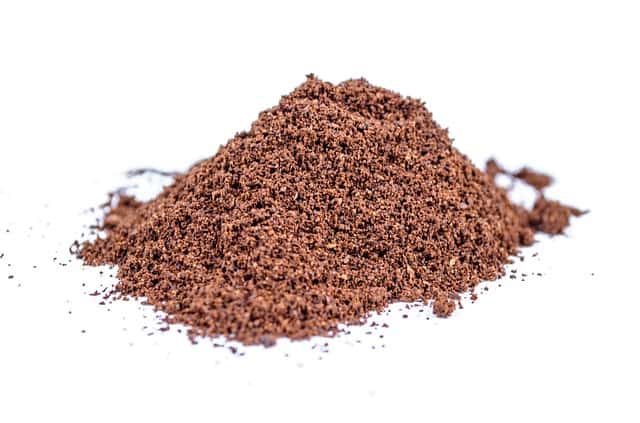
Coffee grounds are an excellent source of nitrogen for house plants. They contain minerals such as calcium, magnesium, potassium, and iron which can improve the health of your plant. For best results add a few tablespoons to your soil mix when you repot your plants or mix a small amount of coffee grounds around the base of your house plants.
Aquarium Water
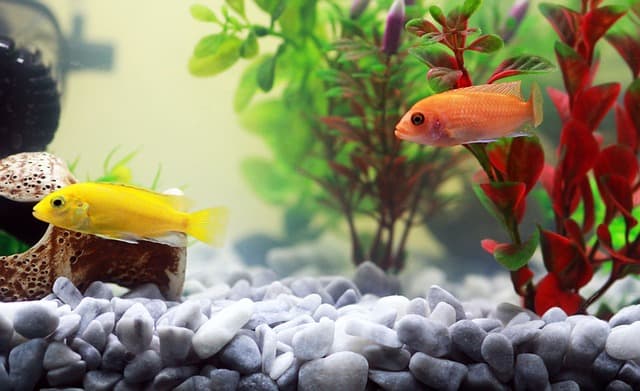
Aquarium water is a great, natural fertilizer for house plants. It contains high levels of nitrates, phosphates, and potassium – all of which are essential nutrients for plants. To fertilize your plants with aquarium water, simply pour the water around the base of the plant whenever you change the water in your aquarium.
Read More: Best Automatic Watering System for Indoor Plants
Hair
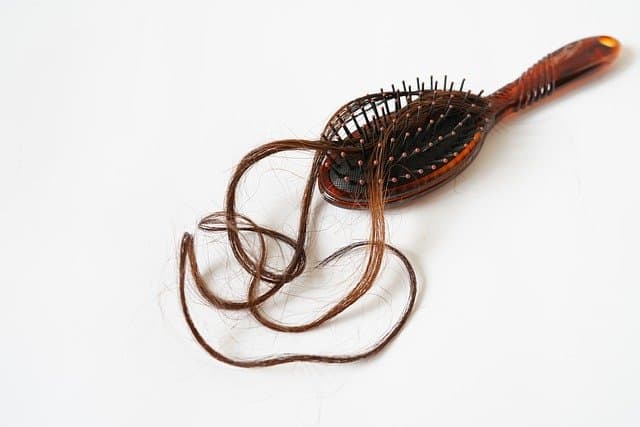
Hair contains nitrogen and magnesium, both of which are necessary for plant growth. To fertilize your house plants with hair instead of synthetic fertilizer, simply collect some hair and chop it up and mix it into your houseplant potting soil. just be aware that hair won’t immediately have any effect, but over time it will slowly break down and release some nutrients that will feed your plants.
Banana Peels
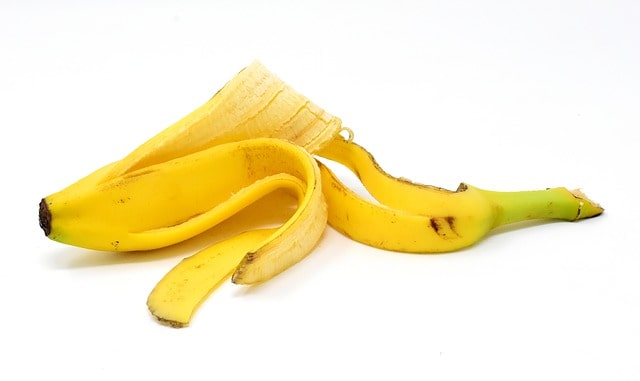
Banana peels are high in potassium, which is a nutrient that plants need in order to grow. You can either put the banana peel directly on top of the soil, or you can bury it a few inches below the surface. Either way, the banana peel will release its nutrients into the soil and help your plant grow bigger and healthier.
Warning: Banana Peels might attract gnats, so you want to be careful when you use banana peels to fertilize your house plants.
Read More: How To Get Rid of Fungus Gnats in Houseplants
Eggshells
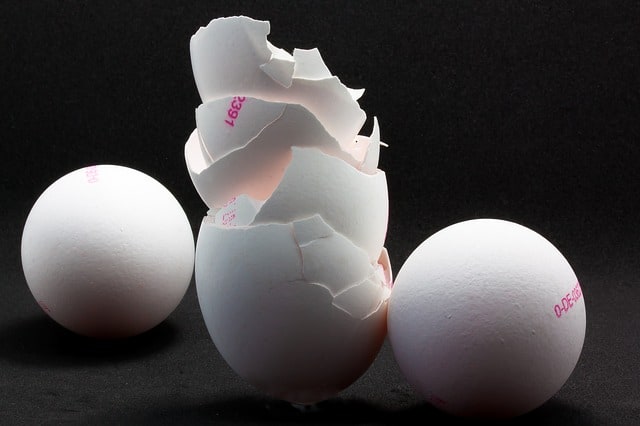
Eggshells are a great way to fertilize house plants. The calcium carbonate in the eggshells helps to neutralize acidity, and it will also supply your plants with much-needed calcium which is vital to plant health.
The best way to use eggshells is to clean them off with some water then let them completely air dry. Then crush them up and mix them into the top layer of potting soil around the base of your plant.
Wood Ashes
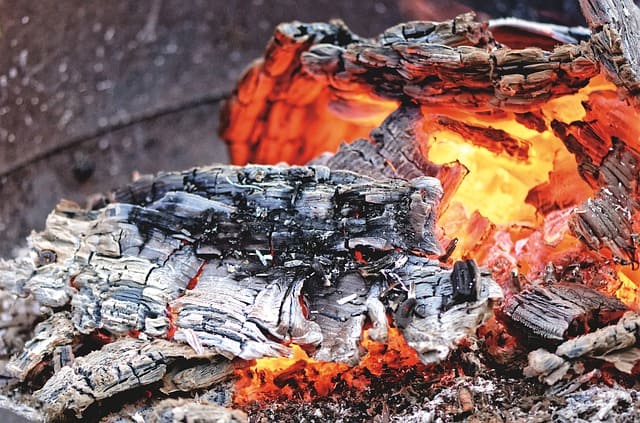
Wood ash is a great way to fertilize plants naturally. It’s high in potassium and phosphorus, which are two essential nutrients for plant growth. To use wood ash as a fertilizer, simply sprinkle it around the base of your plants. Be sure to avoid getting it on the leaves, as it can cause them to burn. You can also mix wood ash with water and use it as a liquid fertilizer.
Read More: Best Fire Pit Under $200
Cooking Water
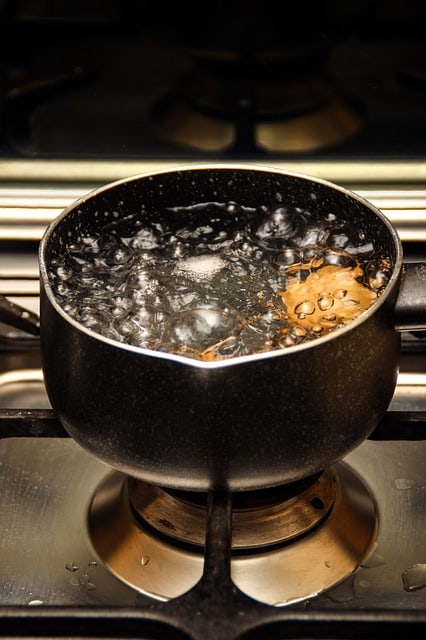
Cooking water is a great way to fertilize house plants naturally. The heat from boiling will release nutrients that are dissolved in the water which can help promote stronger growth rates in your plants.
Organic Fertilizer Versus Synthetic Fertilizer For Houseplants
Which is better for your plants: organic or synthetic fertilizer? The answer may surprise you. Both have their pros and cons, but in the end, it comes down to what works best for you and your plants. Let’s take a closer look at each type of fertilizer to see which is the best choice for you.
Benefits of Using Natural Fertilizers for Houseplants – Organic Fertilizer Benefits For Houseplants
- Organic fertilizers are made from natural substances that are safer for your health and the environment
- You can make your own organic fertilizer by combining compost, manure, and leaf mold
- Organic fertilizers release nutrients slowly over time so you don’t have to worry about burning your plants
- The best types of organic fertilizers can be made at home (compost with some worm castings or worm tea)
- Organic fertilizer is readily available at most garden centers
- Organic fertilizer is better for soil organisms (beneficial bacteria and fungi)
Problems With Using Natural Fertilizers
- Organic fertilizers can take a long time to break down and release nutrients into the soil
- They can also be expensive, depending on the brand
- Some organic fertilizers contain animal byproducts, which can attract pests
- Not all organic fertilizers are created equal – some have higher levels of nitrogen, phosphorus, and potassium than others
Synthetic Fertilizer Benefits For Houseplants
- Synthetic fertilizer is an easy way to keep your plants healthy and thriving
- There are many different types of synthetic fertilizers on the market, so it’s easy to find one that’s perfect for your needs
- Synthetic fertilizer typically costs less than organic options, which means it’s an economical choice for any home gardener
Problems With Using Chemical Fertilizers
- Chemical fertilizers can lead to a buildup of salts in the soil, which can cause problems that are hard to diagnose
- Chemicals can damage or kill beneficial organisms in the soil and on plants
- Chemical fertilizers pose a health risk to humans and pets
- Chemical fertilizers are more likely to burn a plant’s roots
Why It’s Important To Fertilize Indoor Houseplants
All plants need food to grow, and that includes houseplants. fertilizer is the key to keeping your indoor plants healthy and looking their best. Not only does fertilizer provide plants with the nutrients they need to thrive, but it can also help protect them from diseases and pests. So if you want your houseplants to stay green and healthy, be sure to fertilize them regularly.
How To Fertilize Houseplants Naturally Using Organic Fertilizer
One way to fertilize houseplants naturally is by using commercial organic fertilizer, worm castings, and worm tea.
Commercial Organic Fertilizer: One option for fertilizing your plants is to use commercial organic fertilizer. These fertilizers are made from natural ingredients and can help boost the growth of your plants. You can find these fertilizers at most garden stores or online.
Worm Castings: Another option for fertilizing your plants is by using worm castings. Worm castings are a type of compost that contains many essential nutrients for plant growth. It’s also high in calcium and magnesium, which are important nutrients for healthy plant tissues.







